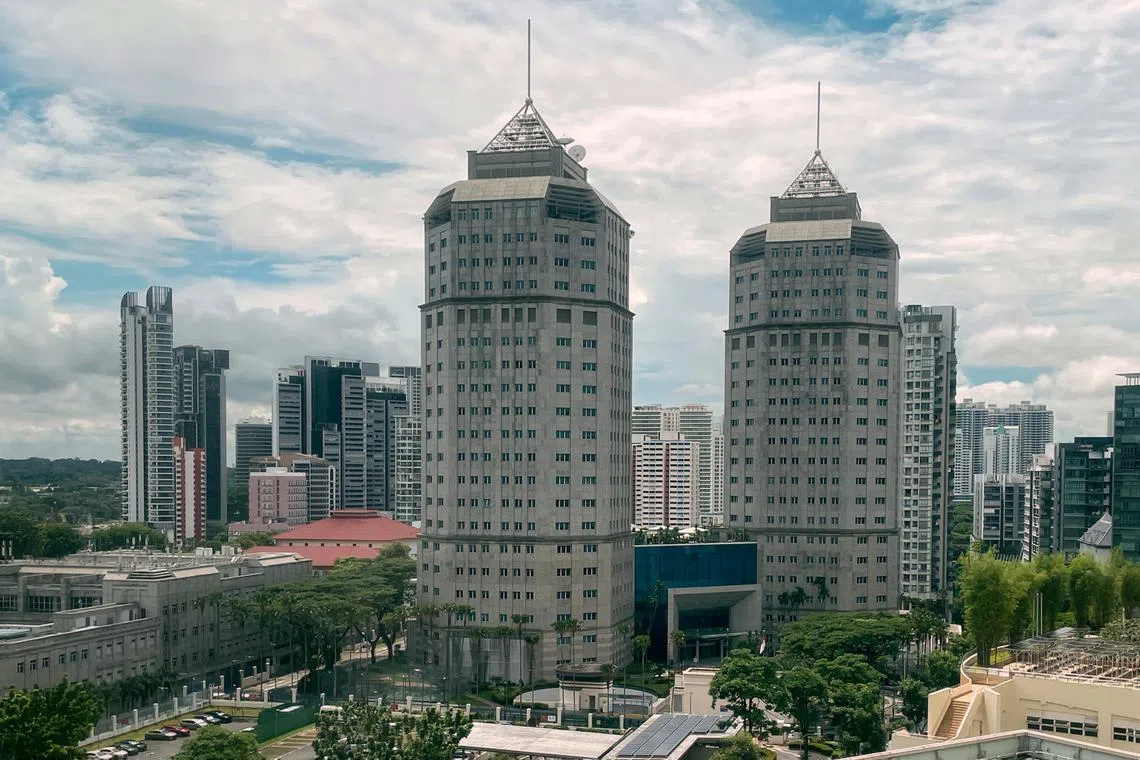ST Explains
How was Singapore’s foreign interference law used against a potential hostile information campaign?
Sign up now: Get ST's newsletters delivered to your inbox

This is the first time Fica has been used to counter potential hostile information campaigns.
ST PHOTO: KUA CHEE SIONG
SINGAPORE – Singapore invoked its foreign interference law on July 19 to require five social media platforms to block 95 accounts
The Ministry of Home Affairs (MHA) said these 95 accounts – linked to exiled Chinese businessman and recently convicted fraudster Guo Wengui
In the run-up to Mr Lawrence Wong taking over as prime minister
The directions to restrict these accounts mark the first time the Foreign Interference (Countermeasures) Act (Fica)
1. What are hostile information campaigns?
Fica was passed in Parliament in October 2021
The provisions in the Act to counter hostile information campaigns took effect on July 7, 2022.
MHA said social media platforms have contributed to the increasing ease, sophistication and impunity with which foreign actors are able to carry out such campaigns.
Hostile foreign actors can deploy a sophisticated range of tools and tactics to interfere in domestic political discourse, incite social tensions and undermine Singapore’s sovereignty, the ministry added.
These include creating and using fake accounts to mislead users about their identity and credibility, and using bots on social media platforms or taking out advertisements to artificially boost the reach of these messages.
MHA said that as an open, highly digitally connected and diverse society, Singapore is especially vulnerable to foreign interference.
It cited an example from 2018, when Singapore faced bilateral issues with another country, noting that there was an abnormal spike in online comments which were critical of Singapore on social media.
“These posts, made by anonymous accounts, sought to create an artificial impression of opposition to Singapore’s positions,” it added.
2. How is Fica used to counter hostile information campaigns?
The law gives the minister for home affairs powers to issue technical assistance directions that require parties to disclose information to the authorities to investigate if there is an ongoing hostile information campaign, and whether the content originates from a foreign source.
The minister can also authorise directions to deal with content or accounts that are part of a hostile information campaign. These directions include:
A stop communication (end-user) direction, which requires the communicator to cease communication of specific hostile information campaign content to viewers in Singapore.
A disabling direction, which requires social media or relevant electronic services to stop the communication of such content in Singapore.
A must-carry direction, which requires various parties to carry a mandatory message from the Government in a conspicuous and timely manner to warn Singaporeans about an ongoing hostile information campaign.
An account restriction direction, which is issued to block content in social media or relevant electronic service user accounts from being viewed in Singapore if there is reason to believe that these accounts are being used or being set up with the intent of being used for hostile information campaigns. This direction was issued to block the 95 accounts.
An access blocking direction, which may be issued to block access to content if service providers or communicators fail to comply with Fica directions.
Those issued with directions under Fica can apply to the minister for home affairs for reconsideration, before appealing to a reviewing tribunal for the direction to be varied or cancelled.
3. How was Fica used in this case?
MHA’s investigations found that 92 of the 95 accounts on X, Facebook, Instagram, YouTube and TikTok are part of a network linked to Guo and his affiliated organisations – the New Federal State of China and the Himalaya Supervisory Organisation.
The other three accounts belong to a Singapore chapter of the Himalaya Supervisory Organisation.
The ministry said that the timing of the coordinated posts, which coincided with the period of Singapore’s political leadership transition, is indicative of deliberate planning and actions.
“There are grounds, therefore, to believe that (Guo’s) network can and may potentially harness the 95 accounts to mount hostile information campaigns which are targeted directly at Singapore,” said MHA.
While this is the first time Fica is used to target hostile information campaigns, it has been invoked on previous occasions.
Businessman Philip Chan Man Ping, a naturalised Singapore citizen, was designated as a politically significant person he had shown susceptibility to being influenced
On July 11, the MHA said it intends to designate the National Trades Union Congress as a politically significant person



